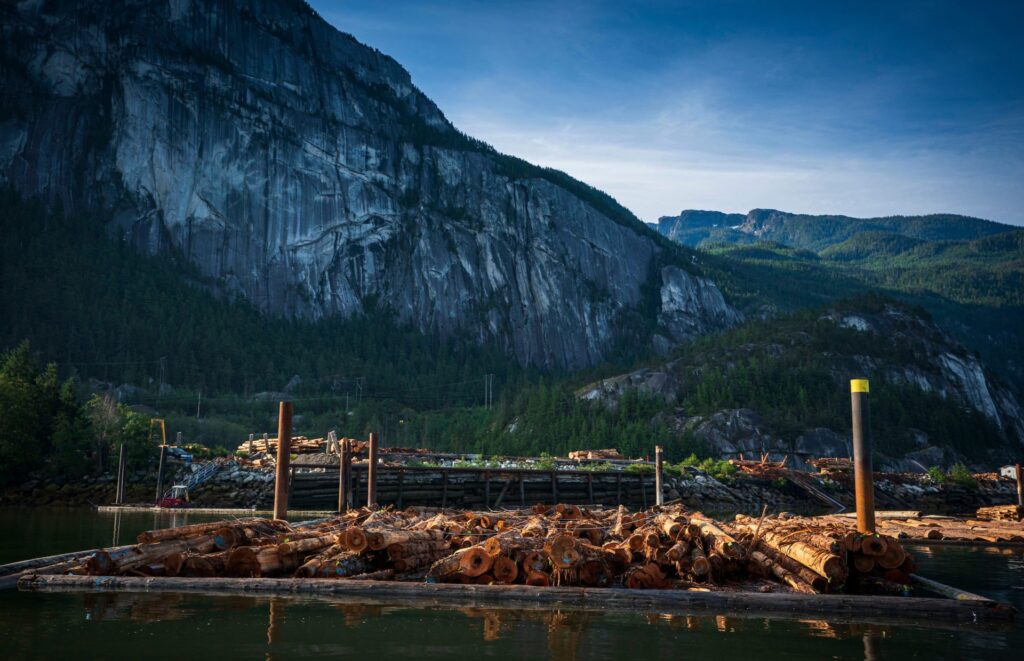News & Insights
Woodfibre LNG Helps Canoe Club Paddle Forward
Oct 18, 2024
Canoeing has always been a culturally important part of the Squamish Nation. Historically, canoes were essential for the Nation to travel along waterways, serving as the primary means of travel for hunting, gathering, and trade. While canoes may no longer be used for transportation, they remain deeply respected by the Squamish people, and that respect is embodied within the local Mt. Chaki Canoe Club.
For over 24 years, the Mt. Chaki Canoe Club has been working to keep this cultural heritage alive. Co-founded by Squamish Nation member Aggie Andrews, the club gives local youth a chance to learn, grow, and connect with their culture through canoeing. Starting with just a few paddles, the club has grown significantly over the years. Today, they have a variety of canoes, including three 11-person canoes, four six-person canoes, three doubles, and eight single-person canoes. This includes the historic “Stanley Park” – a traditional dugout canoe that is over 100 years old. Carved from a single cedar tree, it weighs around 1,000 pounds, seats 11 paddlers and is a reminder of the traditional canoes of old.
Today, most of the club’s canoes are made using cedar strips instead of single-tree dugouts and are designed for speed. Each season, from April to August, the club competes in about eight to ten races, practicing every day to prepare for weekend competitions. Even though the club mainly focuses on youth, it welcomes everyone from the community, creating a space where anyone who wants to embrace this tradition can join. The club has teams in three age groups: under-10, under-13, and under-16. Paddlers from all age groups practice and train for over an hour each day, working on paddling techniques in the water and physical fitness on land.
While members train to succeed in their racing season, the club teaches far more than paddling. It helps to instill important values like discipline, respect, and teamwork alongside the development of sporting skills. Andrews explains, “It takes a lot of discipline and commitment because we train every day. It’s amazing to see the kids grow. Some start off shy but blossom as they learn about teamwork, discipline, and their culture.”
The club has seen many young members grow their leadership skills over the years. For example, Andrews’ grandson, who started paddling at two and has been a lifelong member of the club, now leads teams as their skipper during races.
For many members, the club becomes a second family as they grow up together, bound by canoeing. “It’s inspiring to see how connected the kids become,” shared Andrews, “Over the months, as they meet with other members and volunteers daily, they build meaningful relationships where everyone motivates and supports one another. By the end of the season, it’s clear how much this close-knit group means to them.”
Respect for the cultural importance of canoeing is something else the club encourages with its members. The canoes are always treated with great care; never laid upon the ground and always cleaned and stored properly after every race or practice session. Real bonds are created between the club members and their canoes and that’s shown in the care taken in their treatment.
“We believe canoes have a spirit from the tree they’re made of. We teach the kids to care for them, respect them, and understand their healing power,” explains Andrews.
Andrews shared that she’s seen that healing in many members throughout the club’s operation. Some members have faced personal challenges, and Andrews has seen how canoeing brings them comfort. She described how a canoe can absorb a rider’s anger or frustration, and, as the canoe gets heavier, the rider feels lighter. Once their trip is completed, the energy can be released by washing off the canoe and washing away that negativity. Without caring for the canoe, the weight of those emotions could tip the canoe over to cleanse itself.
While members and volunteers help fund the club, travel costs for races are often high, especially for transporting canoes and covering food and lodging for the paddlers and their families. Community support is crucial to keep the club running. Earlier this year, they received funding through the Woodfibre LNG Community Partnership Program. This allowed the club to focus more on training and building a stronger team, and to spend less time fundraising.
“The sponsorship from Woodfibre LNG has made a big difference,” says Andrews. “Without their help and the support of other sponsors we wouldn’t have been able to deliver this programming for Squamish Nation youth and make it to the races. They’ve helped with travel costs, gas, ferry expenses, and food for our crew.”
Supporting cultural traditions like this creates a lasting impact on Squamish Nation youth and the broader community. By preserving the art of canoeing, the Mt. Chaki Canoe Club is helping the next generation stay connected to their roots while gaining valuable life skills.
As Andrews says, “It’s good work, and it’s good medicine.”
